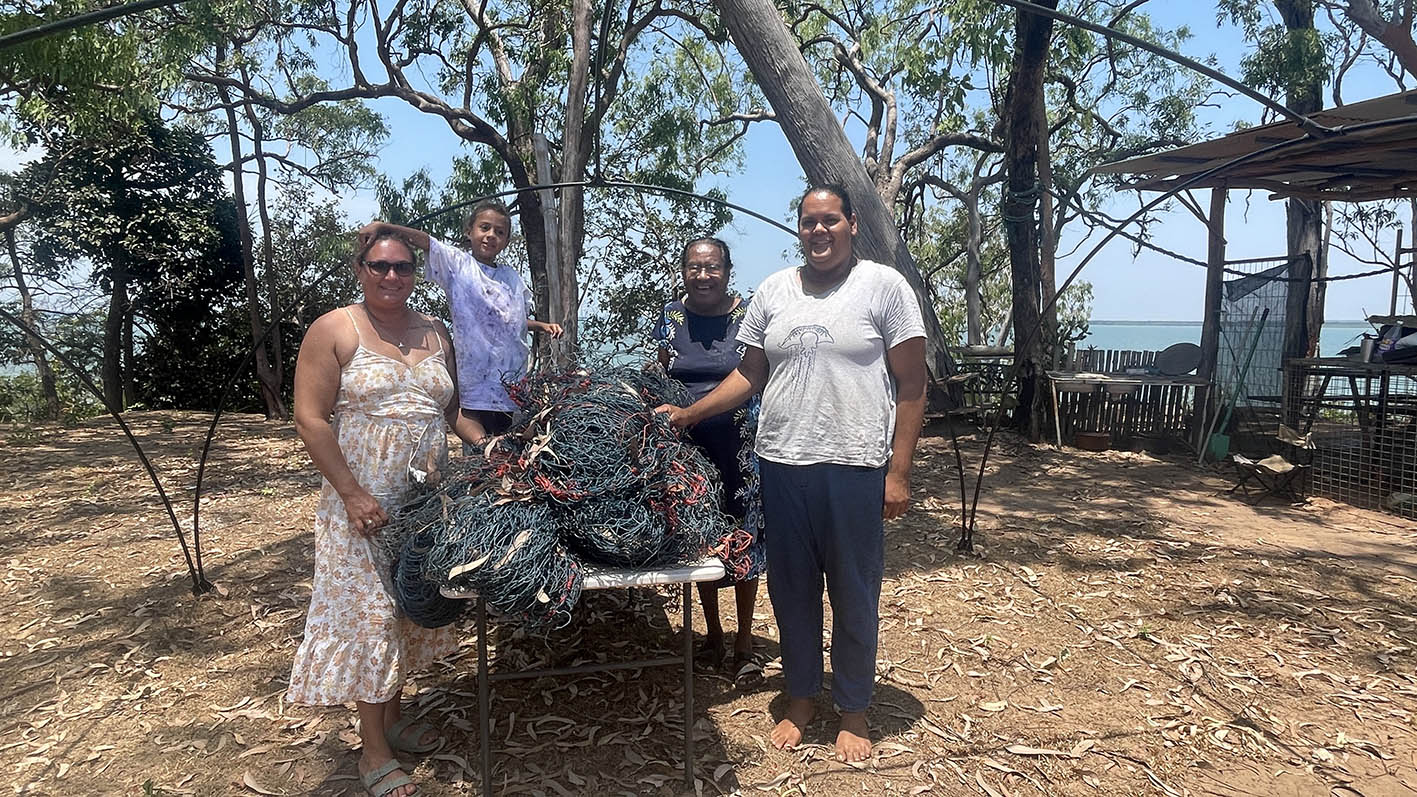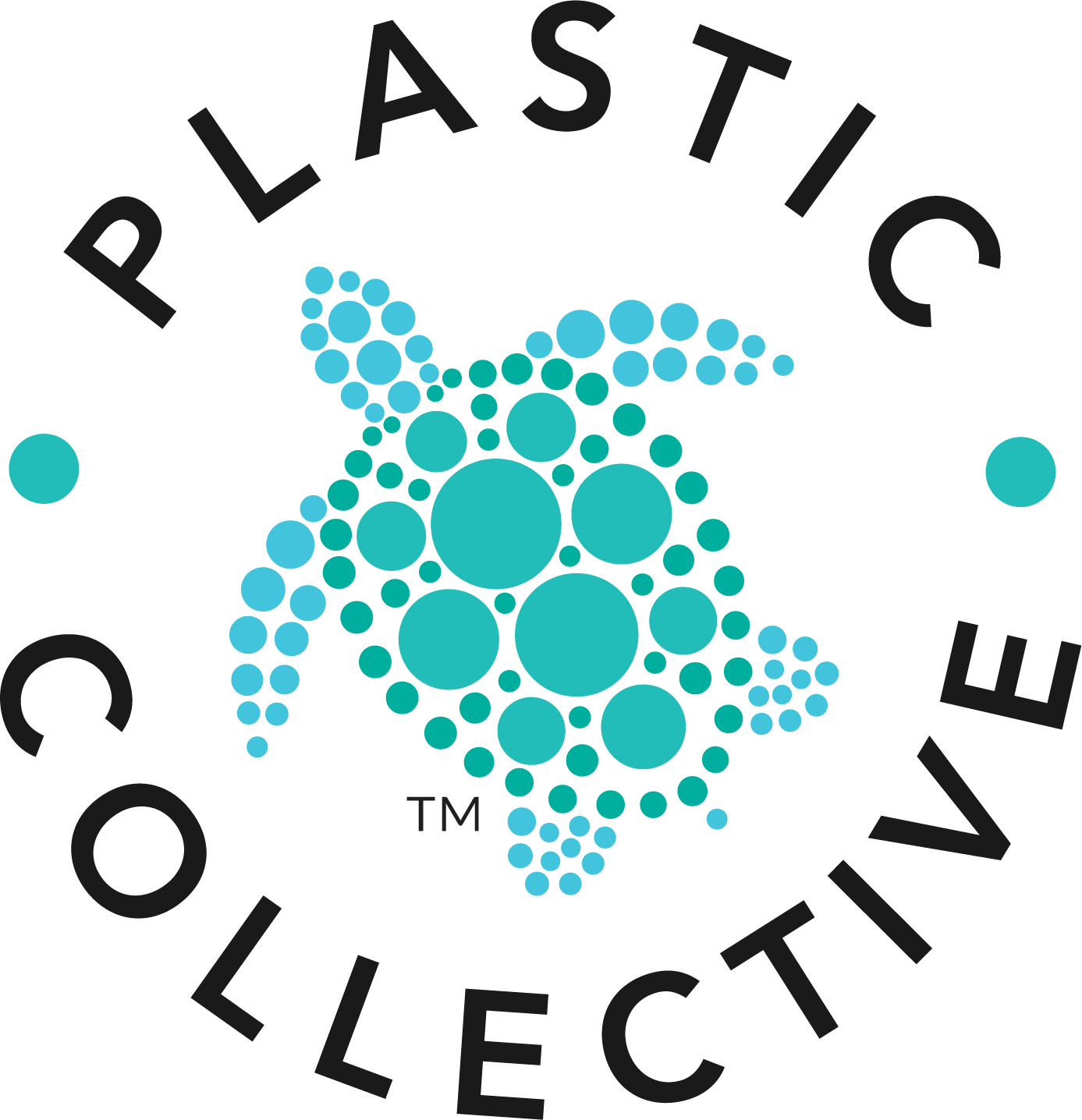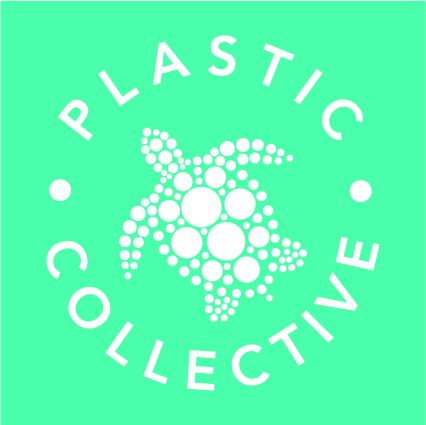New ghost net & marine debris artwork digital marketplace set up to support indigenous women of Cape York

Wei’Num Aboriginal Art and Craft Corporation based in Northwest Cape York, have co-designed an Ocean Arts program called ‘Hunter Gatherers Mamas’ with Plastic Collective (PC) and Charles Sturt University (CSU), to transform marine litter into valuable artworks. Supported by a new online marketplace, tailored training and essential repurposing equipment to produce artworks from ghost net and marine debris, this programme facilitates women in remote communities in Northern Australia to turn plastic pollution into a creative revenue opportunity.
The successful bid for a $400,000 Ghost Net Innovation Grant from Parks Australia received earlier this year, will enable PC and CSU to work with Wei’ Num Arts to deliver specialised equipment to Mapoon and Napranum remote communities in the northwest Cape York region. The project will also deliver a co-designed digital marketplace app to sell their products directly to the wider public and assess the social impact of the project over two years.
Essential educational and training programs in recovery, repurposing and recycling of marine debris will be provided to local Indigenous Land and Sea Rangers, who collect marine debris along remote coastal beaches, as well as the women artists to create and sell products made from up to 70% of the ghost gear and marine debris.

Photo: Mapoon cleanup June, 2023. Disposal of marine debris in skip bins represents 2 days worth of collected material which is typically then sent to a local landfill.

Photo: Aunty Zoe De Jersey, Mapoon, was one of the first Indigenous women to produce ghost net sculptures, including the Magpie Goose and other local animals.

Photo: Aunty Zoe De Jersey, Mapoon, was one of the first Indigenous women to produce ghost net sculptures, including the Magpie Goose and other local animals.
The marine debris problem and opportunity
Western Cape York coastlines have one of the highest concentrations of marine debris and ghost nets in Australia, where discarded coastal and fishing gear flow down on currents from surrounding countries. Indigenous Land and Sea Ranger groups and environmental clean-up groups regularly remove marine debris from the remote beaches, which are important marine turtle nesting sites.
Materials recovered will be sorted and categorised for Reuse Items and Repurposed Arts, which represents an estimated 50% of collections. Training programs in these remote communities have commenced in material identification, sorting and processing materials to recover the highest value for income generation.
Partners, Charles Sturt University, will use AI and digital platforms to develop a culturally appropriate marketplace for artists to enable the tracking of materials, as well as an international sales platform for people to purchase authentic and verifiable ghost gear art directly from the artist.
Plastic Collective is working with expert marine debris artists including Sue Ryan – Ghost Net Art, Atherton), Lynette Griffiths (Ghost Net Collective, Cairns), Zoe De Jersey (Wei’ Num Arts, Mapoon) and Erin Smith (Ocean Sole, Nairobi, Kenya).

Photo: Sue Ryan, Ghost Net Art, has been running local workshops with various communities over the past 20 years.

Photo: Pormpuraaw Artist have been producing unique ghost net art – these can be seen in Cairns Airport.

Photo: Aunty Zoe De Jersey, Mapoon, was one of the first Indigenous women to produce ghost net sculptures, including the Magpie Goose and other local animals.

Photo: Ocean Sole, Africa, have been making recycled rubber thong art and selling wildlife sculptures to the public, employing many locals.
“Providing a grass-roots approach to empowering remote communities to turn waste plastic into valuable resources, is a proactive solution to addressing the plastic problem and providing gainful employment. This program will empower Indigenous women artists, providing income for them and their families, as well as supporting coastal clean-ups and reducing landfill which causes soil, air and water pollution. In the longer term, this pilot program will also be easily replicable and available for other remote communities as a marketplace for repurposed ocean artworks”.
“Wei’Num Arts & Crafts are very pleased to work with, and support Plastic Collective and Charles Sturt University, who were awarded a Grant in early 2023 to help and advise Wei’Num Arts and the Mapoon community, to use ghost nets and marine debris as a resource for high quality Artwork, repurposed items, and other saleable items”.
“We are honoured to collaborate on this project which not only rejuvenates our oceans but also shines a light on First Nations connections with the environment. The world of technology often overlooks the collective wisdom of these communities, as such we are taking a significant step towards laying the groundwork for inclusive technologies that embrace a Country-centric perspective, weaving together environmental stewardship and cultural heritage, turning marine debris into artistic expressions to carry a powerful narrative of survival, resilience, and hope.”

